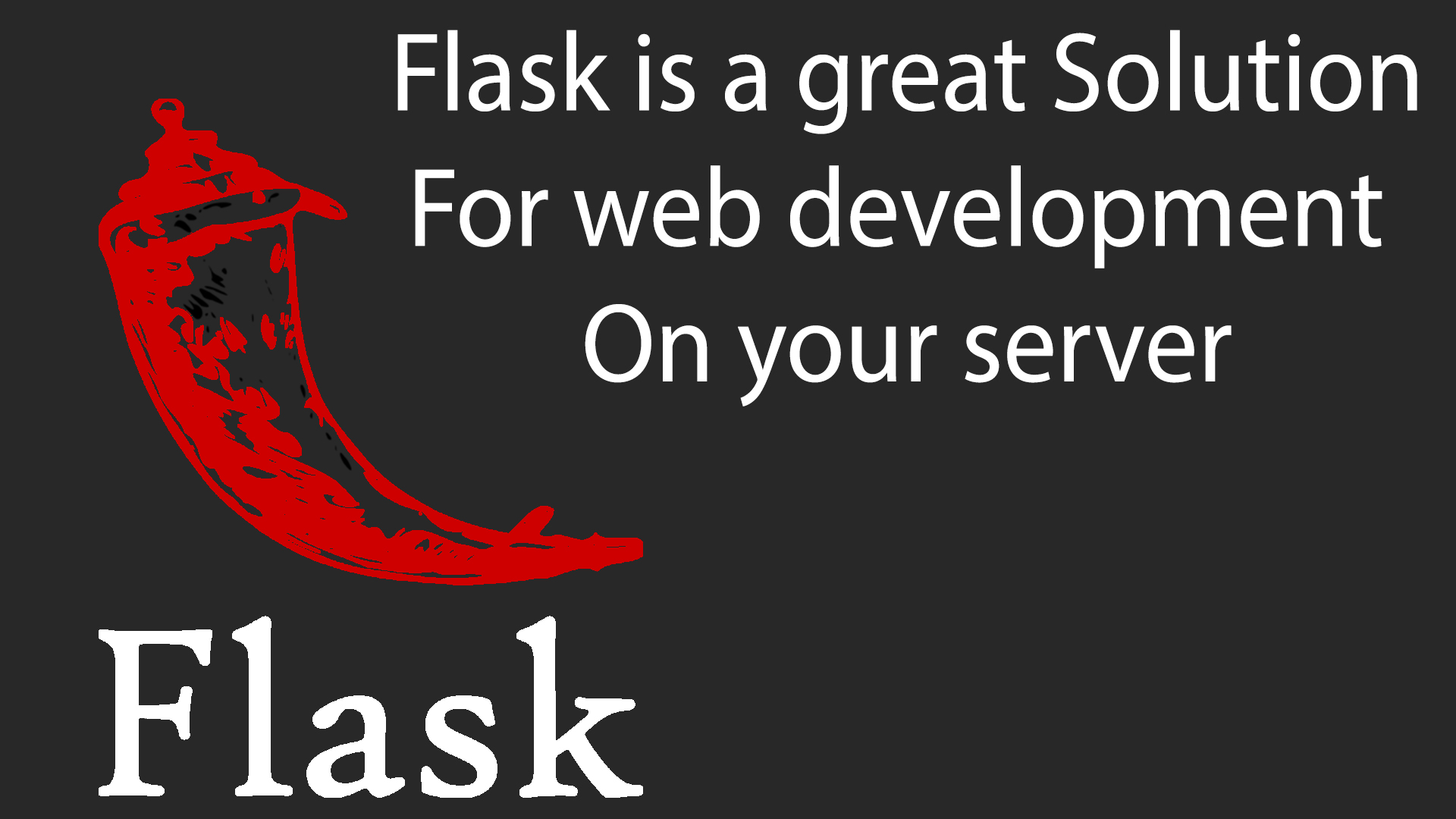Flask is a great solution for web development on your server

Flask is a lightweight framework for web applications that is based on the Werkzeug and Jinja libraries. Flask allows you to quickly and easily create websites, blogs, APIs, microservices and other projects using Python. Flask can be installed on your server and accessed via a web browser. In this article we will look at why it is needed, how it can be useful in business, what advantages and disadvantages it has, where and by whom it is used, why it is worth using it and the conclusion about it.
Why do I need Flask?
Flask is needed by those who want to have a simple and flexible way to create web applications using Python. Flask does not impose any dependencies or project structure on you, but provides you with basic tools for working with requests, responses, templates, sessions, etc. You can independently choose additional libraries and extensions for Flask that are suitable for your task. This way you can control the complexity and size of your application.
How can Flask be useful in business?
Flask can be useful in business for several reasons:
- You can quickly and cheaply create prototypes and MVPs (minimally viable products) using Flask, testing your ideas and hypotheses on real users.
- You can easily scale and maintain your applications with Flask using various deployment options such as WSGI servers, containers or cloud platforms.
- You can integrate your applications with other services and systems using Flask, using its powerful API and extensions. For example, you can integrate Flask with databases, message queues, authentication and authorization systems, analytics and monitoring systems, etc.
What are the advantages and disadvantages of Flask?
Advantages of Flask:
- Simplicity: You can easily install and configure Flask on your server using pip or other package managers. You can also easily get started with Flask using minimal code and documentation.
- Flexibility: You can customize Flask to your needs by adding custom functions, classes, decorators, contexts, etc. You can also use any libraries or extensions for Flask2 that add new functionality or simplify working with certain aspects of web development.
- Openness: You can use Flask for free, as it is an open source project3 licensed under BSD. You can also contribute to the development of Flask or receive support from the community.
Disadvantages of Flask:
- Complexity: You must have certain knowledge and skills to work with Flask, since it does not provide you with ready-made solutions for many web development issues, such as ORM, forms, admin panel, testing, etc. You should also choose and select libraries and extensions for Flask yourself, which may be incompatible or outdated.
- Responsibility: You are responsible for maintaining and updating your server and Flask, as well as for data backup. You should also monitor the security and performance of your application using various tools and practices.
- Limitations: You may encounter some limitations in the functionality or performance of Flask when working with very large or complex applications that require more resources or capabilities.
Where and by whom is Flask used?
Flask is used in various fields and industries, such as:
- Web Development: Flask is used to create websites, blogs, APIs, microservices and other projects using Python. For example, Flask is used to create a Netflix5 website, Pinterest6 blog, Twilio7 API, etc.
- Data and Analytics: Flask is used to work with data, machine learning, visualization and other aspects of analytics. For example, Flask is used to create a JupyterLab8 application that allows you to work with Jupyter Notebook, text editor, terminal and other tools in one interface.
- Education and Science: Flask is used to teach programming, web development, working with data and other disciplines. For example, Flask is used to create a Python for Everyone course that will introduce you to the basics of Python and web applications.
Why should I use Flask?
Flask is worth using exactly when you need it:
- To have a simple and flexible way to create web applications using Python
- Control the complexity and size of your application
- Free to use open source project
- Integrate Flask with other libraries and extensions
Conclusion about Flask
Flask is a lightweight framework for web applications that is based on the Werkzeug and Jinja libraries. Flask allows you to quickly and easily create websites, blogs, APIs, microservices and other projects using Python. Flask can be installed on your server and accessed via a web browser.

